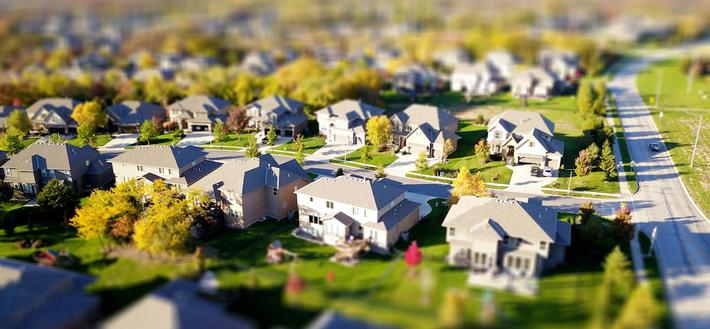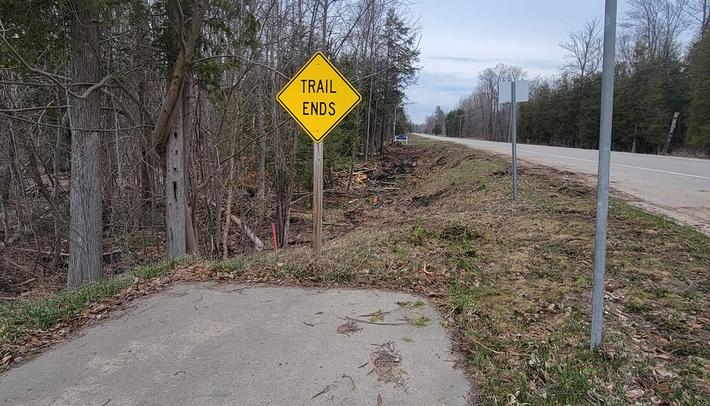Obama in Michigan
May 16, 2010
Obama in Michigan: President’s speech at U-M draws conflicting ideologiesBy Noah Fowle
On May 1, President Barack Obama arrived on the Ann Arbor campus at the University of Michigan (U-M) to deliver the commencement address amid a seething political climate. Consider that in the wake of his hard-won health care reform, Obama’s approval ratings have sunk from the highs following his historic 2009 inauguration. Plus, a trio of East Coast special election victories by Republican candidates has fed a growing grassroots conservative movement, hoping for yet another pendulum shift among the country’s voters.
As a state, Michigan remains at the bottom of national employment statistics, hemorrhaging jobs and people, and remains all too ready for some words of inspiration from the commander-in-chief.
Home to a number of congressional races targeted by the GOP in an effort to cut the Democrats’ majority in Congress, there seemed to be more at stake with Obama’s visit to Michigan than merely sending the class of 2010 into its future endeavors with words of wisdom.
Meanwhile, former Alaskan Governor and one-time vice-presidential candidate, Sarah Palin, was the keynote speaker at a convention put on by Americans for Prosperity less than an hour from Obama’s U-M commencement address, proving that neither side is willing to give up on the state as a base for its core supporters.
STILL DRAWING A CROWD
In spite of criticism that he has either brought too much change or not enough, President Obama remains a popular figure. In her September 17, 2009 invitation to the president, U-M President Mary Sue Coleman outlined four issues that both the administration and the university continue to pursue: health care, energy research, sustainability, and economic development. Besides some common ground on those issues, Coleman suggested that a speech in the U-M Big House would afford Obama a vast turnout.
“Historic Michigan Stadium... would provide an unrivaled setting for you to address an audience of tens of thousands including our students, their families, friends, faculty, staff and citizens of Michigan,” Coleman wrote.
A second letter, this time from a collection of student leaders on campus, redoubled the appeal. According to university officials, spring commencement typically draws 40,000 spectators to the 106,000-plus seat stadium. But interest in the event skyrocketed with Obama’s formal announcement in February to attend. Of the 12,000 eligible graduates, 8,500 of them picked up tickets. With undergraduate degree recipients allotted eight tickets each, and graduate candidates allotted four, the university ran out of available tickets by 3 p.m. on April 30.
“We had intended to offer tickets to the public, but that became impossible because of the overwhelming response from our graduates,” Kelly Cunningham, the director of public affairs, said.
Although construction at the stadium prevented a capacity crowd, by the day of the ceremony, estimates on attendance ranged from between 85,000-90,000, similar to the crowd of historic proportions at Denver’s Mile High Stadium at the close of the 2008 Democratic National Convention.
POLITICAL IMPLICATIONS
The president’s visit to Ann Arbor must be viewed as a growing effort to bestow attention on the beleaguered state and a focal point of the current recession. Earlier this month the White House announced that President Obama will return to Michigan in June to deliver another commencement address, this time to Kalamazoo Central High School.
Michigan Democratic Party Chairman Mark Brewer explained the party’s lack of involvement with the president’s visit by claiming there was “no political aspect,” yet he did not deny the clear political implications associated with the presence of Obama.
“We’re a very competitive state and that’s why we get this type of attention,” he said. “We’ve done well in the last two election cycles, but we can’t take anything for granted in this state.”
Capitalizing on that same notion, Americans for Prosperity organized their own event at the Mount Zion church in Clarkston. The highlight of the Defending the American Dream Summit were the remarks by Obama’s critic-in-chief, Sarah Palin, but the day-long event included a litany of speakers addressing some of the same sentiments espoused by the Tea Party movement and capped off with a Republican gubernatorial candidate debate. Americans for Prosperity shares the ideals of the Tea Party, but refrains from candidate endorsements and instead hopes to arm its conservative supporters with the information they need to become more politically aware and involved.
Jake Davison, the communications director the Michigan chapter, said that in state as blue as Michigan, the Detroit Free Press crowd estimate of 1,500 people was significant and symbolized the competitiveness that will characterize the summer as election season continues to heat up.
“We think that 2010 is perhaps the most important non-presidential election year in recent memory,” Davison said.
Locals weigh-in on the President’s remarks:
Obama was welcomed into Michigan Stadium with a standing ovation before he settled into a speech that asked graduates to contribute not to a bigger or smaller federal government, but a better, more effective one.
While he veered away from any outright political attacks, Obama did work in a pair of jabs aimed at Wall Street and British Petroleum. Still, the bulk of the speech implored for a greater civility in the national debate and a willingness for opponents to more fully understand one another.
“The practice of listening to opposing views is essential for effective citizenship,” he said. “It is essential for our democracy.”
CROSSED THE AISLE
Nick Glauch, a 2006 graduate of Traverse City West Senior High School, said there was a buzz on campus surrounding Obama’s visit among his fellow classmates, regardless of political backgrounds.
“This is certainly welcome territory for the president,” Glauch said of the Ann Arbor campus, where a spontaneous outpouring of support and celebration spilled out into the streets the night of his 2008 election victory. “Even my roommate, who is a former president of the college Republicans, was excited.”
A double-major in philosophy and economics, Glauch is gearing up to take a position with a non-profit health systems research company in order to work on an information technology initiative. He the development of his own personal political ideology began in the 2008 election and in the subsequent policy debates.
“I crossed the aisle on health care reform,” he said. “I am a Republican who is worried about the current track record of the Republican Party. I saw them continue to make hard right turns.”
Glauch agreed with Obama’s call for rational debate and pointed out that a commencement ceremony need not be solely about the graduates, but should instead celebrate the accumulation of knowledge.
“It’s great to stress how important it is to think reasonably and listen to others. The number one thing he said was to carry life forward and remain open to other ideas,” he said. “I think it fell into the tradition of commencement.”
PLEASED WITH MESSAGE
Annie Weldon, a 2006 Traverse City Central High School graduate, said she did not have any expectations heading into the commencement ceremony and emerged pleased with the president’s message.
“In light of recent events, people need to put things in perspective,” the neuroscience and French major said. “I thought the speech was pertinent, something we could all relate to. There were some elements directed to the general public and to us as graduates.”
Betsy Hicks, of Acme Township, traveled with her husband, Gary, to watch their son graduate and said despite counting herself as a moderate in the Republican camp, hearing Obama address a live audience was privilege she would not pass up. Despite the disorganized lines outside the stadium, and a speech that was at times short on inspiration for the graduates and geared more towards a national audience, Hicks came away pleased with her experience.
“It was good, not great,” she said. “You can’t go wrong talking about democracy. But there seemed to be a little too much emphasis on politics in Washington.”
PROTESTS FROM THE LEFT
There is nothing novel about Ann Arbor’s reputation for political activism. In 1960, as a presidential candidate John F. Kennedy introduced the idea that would later develop into the Peace Corps at the university.
The 2010 commencement also coincided with the 50th anniversary of the Student Non-Violent Coordinating Committee. Wolverine-alum, Alan Haber, was at the center of the movement in the 1960s and was just one of many liberal activists joining a joining a series of protests around the stadium on May 1. Haber said he was concerned about both immigration rights and the peace movement’s opposition to the wars in Afghanistan and Iraq.
“I want to encourage Obama to be the leader that those in the movement voted for him to be,” Haber said. “Many of us are disappointed with his pragmatic politics.”
James Arnoldi, the secretary for the Socialist Part of Michigan, said his political colleagues were involved organizing a number of political rallies through the state as part of the May Day tradition, but also because they are insulted by ongoing claims that Obama is a socialist.
“We’d like to get the word out that we don’t support the actions of Obama,” he said. “We believe his actions have not been socialist in nature. What he is doing is the exact opposite of what we would want as socialists.”
In the lead-up to Obama’s remarks, a large crowd of pro-immigration rights activists marched along Stadium Avenue, beating drums and chanting loud enough to be heard inside the stadium.
But left-wing organizers were not the only protesters who came to have their voices heard. A group of pro-life supporters maintained a presence near the stadium’s north entrance, and a handful of others carried signs typical of the Tea Party movement; however, the Ann Arbor chapter did not organize any official protest and remained a similar position as the Democratic party that the day was first and foremost to honor the school’s graduates.
CRITICISM FOR GRANHOLM
Michigan Governor Jennifer Granholm also spoke and enjoyed a similar, if not as robust, welcome as Obama. But in a lead-up to the president’s speech and acceptance of his honorary law-degree, Granholm, whose name surfaced again as a possible nominee for the seat vacated by Justice John Paul Stevens this summer, delivered a series of remarks that amounted to little more than political cheerleading.
Her over-the-top thanks to the president for the stimulus package, automotive bailouts and health care reform drew jeers in the aftermath of the day’s ceremony and failed to draw a nomination from Obama - that distinct honor was awarded to Elena Kagan.
What did the student’s think of Granholm? Hicks said while she had hoped for more inspirational anecdotes from the president, Granholm’s delivery was “completely inappropriate.” Glauch agreed.
“It crossed the line,” he said. “I felt like I was at a political rally.”
Trending

Walking in an Artsy Wonderland
Michigan Legacy Art Park is hosting the “Raindrops” artwork created by Dewey Blocksma and Patricia Innis at th... Read More >>
Seven Takeaways from Local Real Estate Agents for the Spring/Summer Market
The last few years in local real estate have been akin to what one local agent described as the “wild west,” w... Read More >>
Blazing the Boyne City to Charlevoix Trail
We’re getting ever closer to an interconnected northern Michigan thanks to ongoing work on the Boyne City to Charlev... Read More >>


